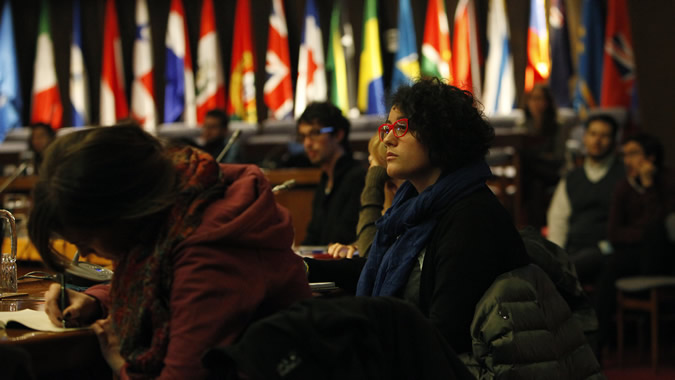ECLAC’s Summer School Accepts Applications for its Seventeenth Edition
Work area(s)
The classes will take place between July 20 and September 30 at the regional organization’s headquarters in Santiago, Chile.

Young researchers interested in studying the Latin American development process can apply to the seventeenth session of the Summer School on Latin American Economies, organized annually by the Division of Production, Productivity and Management of the Economic Commission for Latin America and the Caribbean (ECLAC). The registration period ends on April 18 and the list of the selected candidates will be published on April 27.
The course, which will be held at ECLAC’s headquarters in the Chilean capital, is free of charge but participants are responsible for the costs associated with their travel and accommodation. Anyone in the world with an advanced university degree in economics or related areas can apply. Ideally, applicants would be seeking their Master’s or doctorate degrees in the field of economic development and would understand Spanish and English.
The classes, which will take place between July 20 and September 30, are given by ECLAC’s professional staff along with prominent guest economists and social scientists. They will address theoretical and empirical matters, with an emphasis on growth theories and distribution, and the region’s recent economic history.
The Summer School will give this year, along with the Institute for New Economic Thinking (INET), a seminar with former students which aims to forge ties between old and new generations of participants of the program, started in 2000.
The seminar “Keynes meets Schumpeter” will also be held. Keynesian and Schumpeterian economists will be invited to discuss ideas and to expand complementarity between both traditions of thinking.
Type
Country(ies)
- Latin America and the Caribbean
Related link(s)
Contact
Public Information Unit
- prensa@cepal.org
- (56 2) 2210 2040